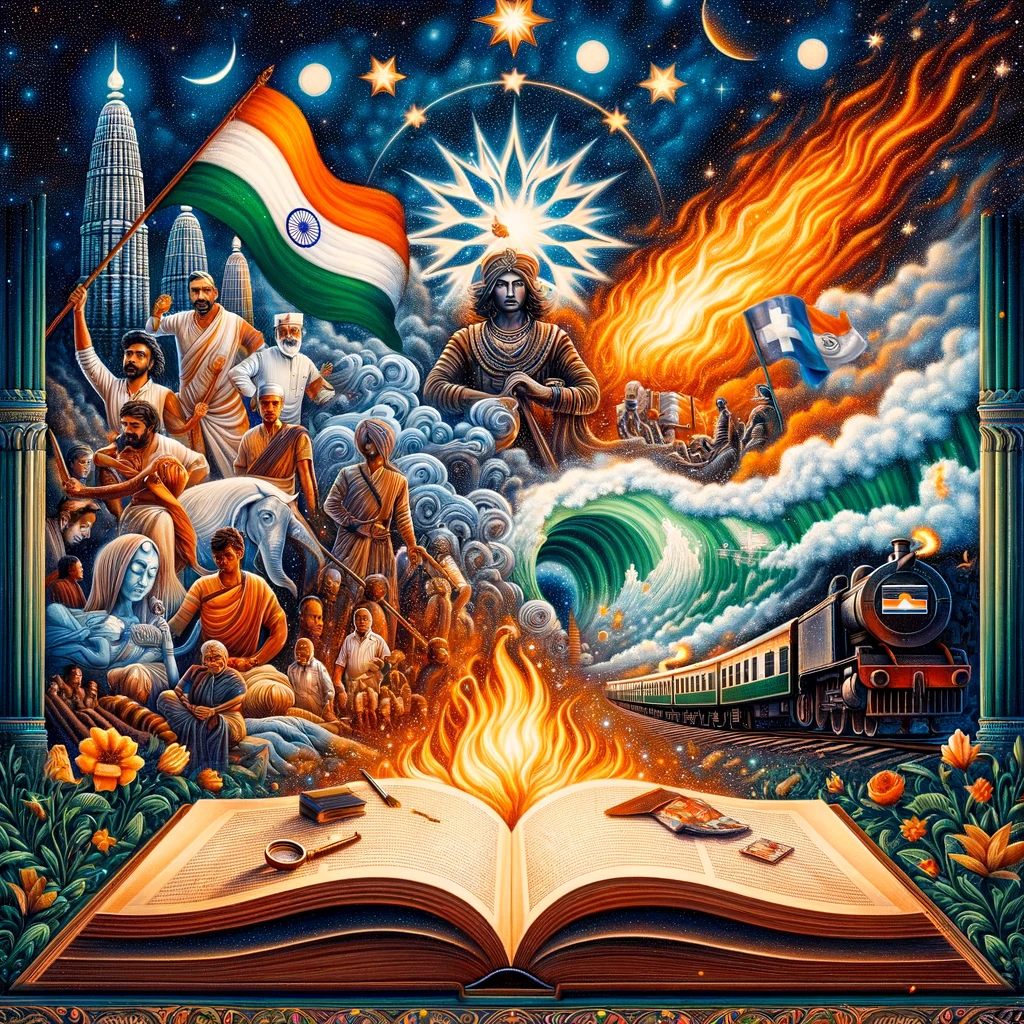On This Day 1 February 2024 Thursday
Sam Vikram: 2080 Purnimanta Mass: Magha Paksha: – Feb 01 02:03 PM – Feb 02 04:03 PM Tithi: Krishna Paksha Shashthi
 Panchang / पंचांग
Panchang / पंचांग
Virram Samvat / विरम संवत: 2080
Shaka Samvat / शक संवत: 1945
Amanta Month / अमान्त मास: Pausa
Purnimanta / पूर्णिमांत: Magha
Tithi / तिथि: Krishna Paksha Shashthi
Today/ आज
Festivals Today:
Festials Tomorrow: Kaalaashtamee
Day Today: World Interfaith Harmony Week, 1-7 February (A/RES/65/5)
Day Tomorrow: World Wetlands Day (A/RES/75/317)
Yoga / योग:
Dhrithi – Jan 31 11:40 AM – Feb 01 12:27 PM
Soola – Feb 01 12:27 PM – Feb 02 12:54 PM”
Karana / करण:
Vanija – Feb 01 12:53 AM – Feb 01 02:04 PM
Vishti – Feb 01 02:04 PM – Feb 02 03:08 AM
Bava – Feb 02 03:08 AM – Feb 02 04:03 PM”
Sunrise / सूर्योदय: 7:13
Sunset / सूर्यास्त: 17:55
Moonrise / चंद्रोदय: 23:47
Moonset / चंद्रास्त: 11:07
![]() Auspicious Time / शुभ समय
Auspicious Time / शुभ समय
Abhijit Muhurat – 12:13 PM – 12:55 PM
Amrit Kaal – 08:42 PM – 10:28 PM
Brahma Muhurat – 05:36 AM – 06:24 AM”
![]() Inauspicious Time / अशुभ समय
Inauspicious Time / अशुभ समय
Rahu – 1:54 PM – 3:14 PM
Yamaganda – 7:13 AM – 8:33 AM
Gulika – 9:54 AM – 11:14 AM
Dur Muhurat – 10:47 AM – 11:30 AM, 03:04 PM – 03:46 PM
Varjyam – 10:02 AM – 11:49 AM
Information Source: https://www.prokerala.com/
Today / आज
Major Historical Events / प्रमुख ऐतिहासिक घटनाएँ On This Day
Battle of Salher: On February 1, 1672, Maratha forces led by Prataprao Gujar decisively defeated a Mughal army twice its size in the Battle of Salher, one of the largest battles fought in the 17th century.
Valor and Strategy: The Enduring Legacy of the Battle of Salher
Battle of Delhi (1764): The date is incorrect as the Kingdom of Bharatpur, under Maharaja Jawahar Singh, did engage the Mughal Empire in battle, but the Battle of Delhi occurred in 1753 not on February 1, 1765.
Raghoji I Bhonsle: Raghoji I Bhonsle, later known as Raghoji I the Great, expanded the Maratha Empire’s territories into the Deccan and Central India but the specific event on February 1, 1755, is not well-documented for a significant historical incident.
Vijaya Raghunatha Raya Tondaiman II: This ruler was indeed associated with the Pudukkottai kingdom, but there is no specific event of historical significance recorded on February 1, 1807.
Royal Indian Navy Mutiny (1946): The date is correct but lacks detail. On February 1, 1946, the Royal Indian Navy mutiny began as a strike and was later joined by protests from the Royal Indian Air Force and local police forces, significantly impacting the Indian independence movement.
Vajpayee’s Historic Bus Trip to Pakistan (1999): The date is incorrect. Indian Prime Minister Atal Bihari Vajpayee’s historic bus journey to Lahore, Pakistan, occurred on February 19-20, 1999, not on February 1st.
Godhra Train Incident (2002): The Godhra train burning occurred on February 27, 2002, not February 1st. This tragic incident led to widespread riots in Gujarat, resulting in significant loss of life and property.
Indian Government’s Healthcare Plan (2018): The Indian government did announce a major healthcare initiative in February 2018, which aimed to provide free services to millions, but the specific announcement date was not February 1st.
Historical Events in Brief / ऐतिहासिक घटनाएँ संक्षेप में On This Day
Mathew Brady’s Presidential Photograph: On February 1, 1849, Mathew Brady took the first photograph of a sitting U.S. President, capturing James Polk in office and setting a precedent for presidential portraiture.
Franklin D. Roosevelt Assassination Attempt (1933): Correct. On February 1, 1933, an assassination attempt on President Franklin D. Roosevelt occurred in Miami, Florida. The attack fatally wounded Chicago Mayor Anton Cermak instead, with the gunman, an Italian immigrant, later sentenced to death.
Internment of Japanese Americans (1942): Correct. Beginning February 1, 1942, following President Franklin Roosevelt’s Executive Order, over 110,000 Japanese Americans were relocated from the Pacific coast to internment camps, leading to widespread closure of businesses and disruption of lives.
Ravindra Mhatre Kidnapping and Murder (1984): Correct. Indian diplomat Ravindra Mhatre was kidnapped and later murdered by Kashmiri terrorists in Birmingham, England, on February 1, 1984.
Soviet Withdrawal from Afghanistan (1989): Correct. Soviet Russia completed its military withdrawal from Afghanistan on February 1, 1989, marking the end of a nine-year conflict that resulted in significant Russian military casualties.
India’s Rural Jobs Scheme (2006): The National Rural Employment Guarantee Act (NREGA) was indeed launched in February 2006, aiming to provide jobs to millions of rural poor, but the exact date was not February 1st.
India-Pakistan Nuclear Agreement (2007): India and Pakistan did sign an agreement in February 2007 to reduce the risk of nuclear accidents, but the specific date of the agreement was not February 1st.
India-Russia Uranium Deal (2009): In early February 2009, India and Russia signed a significant nuclear deal for uranium supply, but the exact date of the signing was not February 1st.
Resignation of Hosni Mubarak (2011): Incorrect date. Hosni Mubarak resigned as President of Egypt on February 11, 2011, after 18 days of protests, ending his nearly 30-year rule.
Anniversary / वर्षगांठ On This Day
Shah Jahan, the Mughal emperor known for commissioning the Taj Mahal, died on February 1, 1666, in Lahore.
Ajay Jadeja, a renowned Indian cricketer from Jamnagar, celebrates his birthday on February 1, 1971.
Dipankar Bhattacharjee, an Indian badminton player and two-time Olympian, was born on February 1, 1972, in Guwahati.
Satpal Singh, an esteemed wrestling coach, was born on February 1, 1955, in Bawana, Delhi.
Ronda Rousey, a celebrated martial artist, and judoka, was born on February 1, 1987, in Riverside, California, USA.
Jackie Shroff, a prominent figure in Indian cinema, celebrates his birthday on February 1, 1957.
Mahek Chhal, known for her work in Indian entertainment, was born on February 1, 1979.
Graeme Smith, a South African cricketer and captain, was born on February 1, 1981, in Johannesburg.
Gabriel Batistuta, an Argentine football legend, celebrates his birthday on February 1, 1969.
Freedom Fighters’ sacrifice
In the annals of India’s fight for independence, the events that unfolded on 1 February across different years bear the marks of courage and the high price of freedom. The year 1858 was particularly bloodstained, as numerous freedom fighters, across caste and creed, faced the gallows for their unyielding resistance against British colonial rule. Aman Ali of Sarai Rohilla, Delhi; Ameer Khan of Kaghazi Mahalla, Delhi; Cudree Bux of Turkman Gate, Delhi; and several others, each with their distinct background, united by a common cause, were convicted of rebellion and met their end on the noose. Their actions during the 1857 Uprising were diverse, ranging from direct combat to supporting rebel activities and plundering as a form of resistance.
Sachindra Nath Sanyal
Sachindra Nath Sanyal’s story, though set later in the struggle, resonates with the same fervor for freedom. Born in 1893, he emerged as a leading figure in the Anushilan Samiti, advocating for armed revolt against the oppressive British regime. His revolutionary zeal led him to organize movements across Punjab and Uttar Pradesh, becoming a vital link in the chain of Indian revolutionaries. Convicted in the Benares Conspiracy Case in 1915, he was sentenced to life transportation but continued his struggle upon release, contributing to the literature of revolt and engaging in arms trafficking. His relentless fight for India’s liberation continued until he was re-arrested and died under internment on 1 February 1943.
Each of these individuals, from Aman Ali to Sachindra Nath Sanyal, symbolizes the multifaceted resistance of India’s freedom struggle. They remind us that the path to independence was paved with countless sacrifices, and the date of 1 February stands as a testament to their indomitable spirit.
